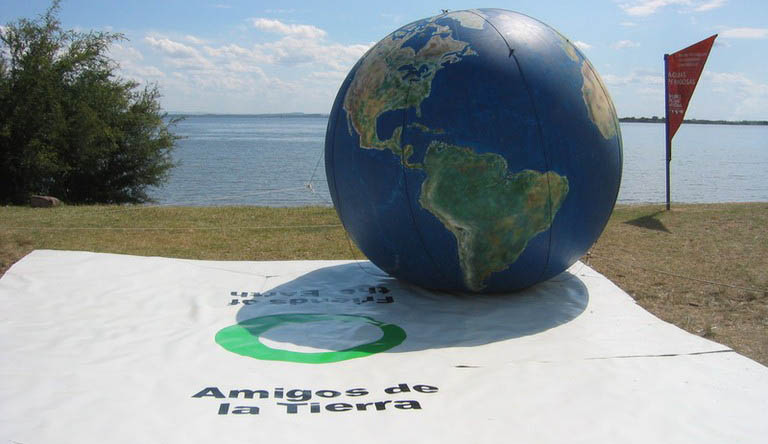In the aftermath of the devastating hurricane Katrina Friends of the Earth Europe has called the catastrophe a wake-up call for world leaders to act upon the global threat of climate change by swiftly agreeing new steps to cut greenhouse gas emissions. According to Friends of the Earth Europe, any delay will mean more people suffering from more intense weather disasters as a result of global climate change, including in the United States, but also in Europe, as the 2005 floods, droughts and storms show. Friends of the Earth in particular criticised the continued refusal of US President Bush to join international efforts to curb global warming.
Jan Kowalzig from Friends of the Earth Europe said: “Our hearts are with the victims of this tragedy, and disaster relief must be top priority for the coming weeks. Looking for someone to blame will not help the people in New Orleans. Yet, it is in our hands to avoid an increase in number and intensity of similar weather disasters around the globe, including their destructive impacts on our societies and economies.”
“The cure is well known: we need a drastic cut in greenhouse gas emissions. With all respect to the tragedy, this means President Bush must rethink his stance on global warming. In the face of mounting evidence of rapid climate change the US President has so far downplayed the scale of the problem and refused to take action to tackle it. His Administration has worked tirelessly to derail international agreements on climate change and sought to put narrow US economic interests above global climatic stability.”
“The price to pay is too high, as we learned from this disaster, which is a taste of what we will have to live with if we continue to pollute the atmosphere.”
Friends of the Earth Europe notes with concern that extreme weather events such as the hurricane Katrina will become more common as climate change is proceeding apace. Although there is at present no means by which to tell whether this particular storm was due to human induced global warming, the devastation it has caused is consistent with the projections generated by climate change models that suggest such storms will become more severe as the world warms up. Also, scientists are convinced that the increasing water temperatures in the world’s oceans, from where this hurricane gained its destructive powers, are indeed a result of man-made global warming. The intensity of such hurricanes has increased by 50% over the last decades. [1]
Jan Kowalzig continues: “The world must act together to avoid irreversible climate change whose consequences are set to get worse. The impacts are ubiquitous. Hurricanes in the Caribbean region, but also the recent floods in Romania, Austria or Germany, the extreme drought and forest fires in Portugal, or the storms in the Baltic States and Scandinavia earlier this year clearly show the trend.”
“This is also a great challenge for Europe. Greenhouse gas emissions are rising, and agreed policies do not deliver the necessary reductions, mostly because national economy ministers block meaningful action in order to protect a few
individual industry sectors. They do so at the expense of the overall economy and society, which will be increasingly suffering the negative impacts of unabated climate change.” [2]
The next opportunity to tackle climate change is the UN climate change conference COP11, taking place between 28 November and 8 December in Montreal, Canada. Governments will meet to formally begin new negotiations on future action on climate change for the time after 2012, when current provisions of the Kyoto Protocol end. Friends of the Earth Europe calls on the European Union to show leadership at these negotiations, ensuring a robust framework for the future that delivers real emission cuts in order avoid the more catastrophic effects of climate change. This will mean emission reductions for industrialised countries of at least minus 30% by 2020, compared to 1990 levels. It will also mean that rich countries will have to provide finance and technology for developing countries to allow them to develop in a low-carbon, sustainable manner.
NOTES
[1] Research findings published in the science journal Nature in August suggest increased sea surface temperatures as a consequence of global warming, will lead to more intense hurricanes. The analysis, by climatologist Professor Kerry Emanuel of the Massachusetts Institute of Technology, says that major storms in the Atlantic and Pacific since the 1970s have increased in intensity by about 50 per cent. This trend is closely linked to rises in the average temperatures of the sea surface. See: Nature, 4 August: “Increasing destructiveness of tropical cyclones over the past 30 years”, by Kerry Emanuel. [2] See also “How the European Union responds to the threat of global climate change”; an assessment of existing and planned EU measures to fight climate change. June 2005.





